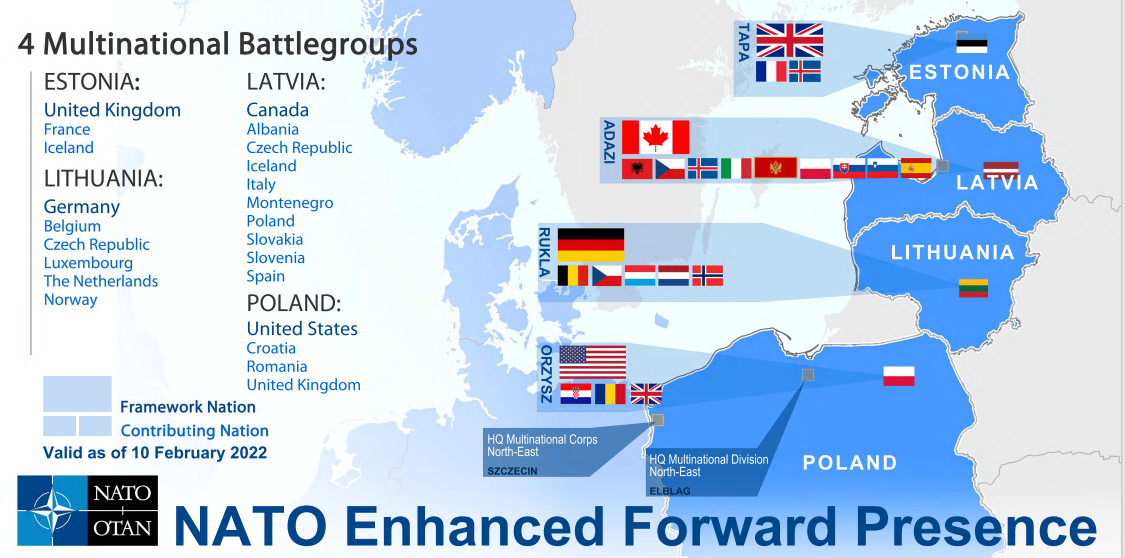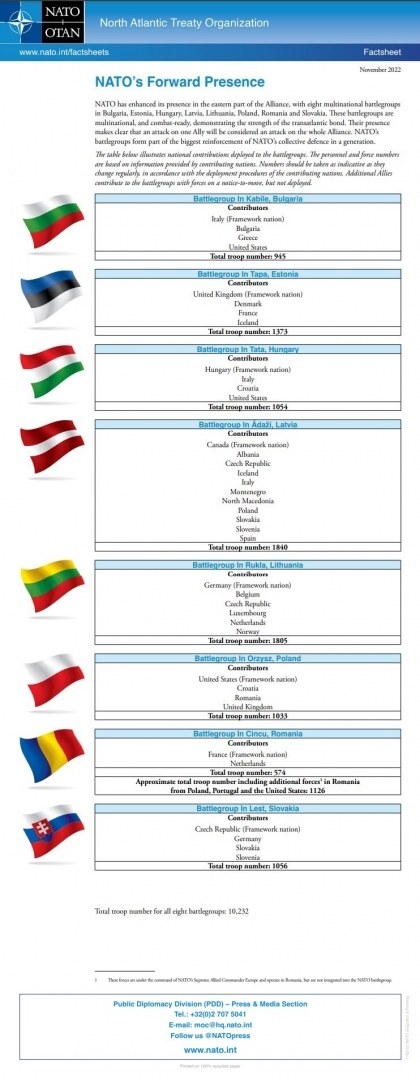NATO’s multinational EFP battlegroup in Latvia aims at boosting defence and deterrence capabilities on the eastern flank of the Alliance. The presence of the battlegroup is sending an unmistakable signal about the unwavering resolve of NATO members to consider an attack on one Ally as an attack on the whole Alliance. NATO enhanced Forward Presence is defensive in nature, proportionate to, and fully in line with international commitments and demands.
The multinational Allied battlegroup arrived in Latvia in June 2017. Its framework nation, Canada, has committed to scaling up the battalion-size battlegroup to a combat-capable brigade by 2026. The nations contributing voluntary to the battlegroup are Albania, the Czech Republic, Iceland, Italy, Montenegro, North Macedonia, Poland, Slovakia, Slovenia, and Spain. Those countries are sending, on a rotational basis, their troops and combat-ready equipment to Latvia to deter any possible aggression and defend the NATO territory, should the need arise. Canada’s plans for the brigade build-up envisages deployment of up to 2000 troops. By the end of 2023, Canada had deployed 15 tanks in Latvia.
In 2023, Denmark too announced a decision to send a battalion of land forces, naval frigates and fighter jets to Latvia. Denmark and Latvia cooperate as framework countries in the Headquarters Multinational Division North.
The Allied troops take part in joint international and local exercises together with the Latvian armed forces. Honing of their skills and adaptation at the international level enhances interoperability. Based on that experience, NATO member countries will be able to respond more rapidly and effectively to current security challenges.
To host the Allied forces, Latvia continues to develop the supporting infrastructure in cooperation with Canada: the Lielvārde Air Base, the Camp Ādaži base, and the Selonia Military Training Area currently under construction, which will be the largest in the Baltic States and offer facilities for training, exercise and accommodation twice as large as Camp Ādaži.
Alongside the Canadian-led NATO battlegroup in Latvia, the United Kingdom is the framework nation for a battalion-size battlegroup in Estonia, Germany – in Lithuania, and the USA – in Poland.
NATO’s enhanced Forward Presence in the Baltic States and Poland serves to strengthen the Allied collective defence in adapting to the new security situation in Europe following the unprovoked and illegal full-scale invasion of Ukraine by Russia.





